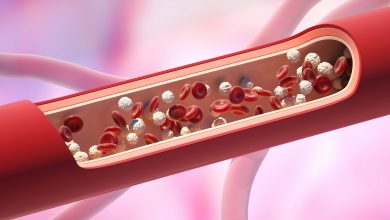Congratulations! You have successfully completed and submitted your ERAS application for residency training. This is a big accomplishment, but do not celebrate for too long. There are plenty of things you still need to do in order to successfully “match” into the right training program for you.
Secondary vs. Supplemental Applications
Growing up in the 1980’s is made to look cool in television and movies. However, it was not all parachute pants and synthesizers. I applied to medical school in 1991, prior to the centralized application of AMCAS. Once AMCAS arrived, there was much rejoicing amongst the academic community. However, this ovation was brief, as the centralized application for medical school merely pushed the work to the now-dreaded secondary applications for medical school.
Much like the evolution of AMCAS, I fear the same fate for ERAS. We are seeing this currently with the specialties of Dermatology, General Surgery, and Internal Medicine requiring the new-to-this-cycle “supplemental application” for those specialties. For those that chose specialties other than the above named three, do not celebrate prematurely, as specific programs from all specialties are springing their own program-specific secondary application. These may be sent before or after an interview invite. Watch for those program-specific secondaries to arrive in your ERAS email inboxes.
Check Your Email Frequently
This emphasizes the point that you should be logging onto your email and ERAS account at least once a day to look for secondary applications, as well as any interview invites. So far, these program-specific secondary applications are usually short and painless. However, this process is still very new, so they could become a bigger undertaking in the future.
Related Tool: Compare each residency to determine which specialty is your best match.
Interview Preparation
Now that your application is submitted, it’s the perfect time to begin residency interview preparation. Also, this is the time to tame the mullet and get a professional haircut. Make sure you still have your interview outfit, or else it may be time for a bit of a shopping spree. Enlist the help of family, friends, and colleagues to practice the common residency interview questions. Research each program prior to your interview so you have an idea of the strengths and missions of each one.
MedSchoolCoach offers expert sessions for this and I highly recommend checking into these, as well as a plethora of other helpful services, at MedSchoolCoach.com.
Thank You Emails
Once you have interviewed at each program, remember to send thank you emails. I recommend sending these within a few days after your interview. You could also send emails to programs you are highly interested in to update them of any new accolades not included on your application, and to express continued interest if your interview took place early in the process.
Write down names of the program director, assistant program director, program coordinator, chief resident, attending physicians, and current residents that you interacted with during your interview. A good resource for email addresses is the program coordinator. I cannot stress enough the importance of treating the program director with the utmost respect. They have a unique inside track to the programs and carry significant leverage, including when it comes time for the program’s rank list creation.
Related Tool: Find out what score you need for the residency of your choice!
Register with NRMP
ERAS is the application system that you fill out and send to specific programs in your specialty of choice. Once your applications are transmitted to your program choices, each program can now review your application via this ERAS system. Now you need to register for the NRMP match system. Yes, they are two separate entities and you must register for both.
You must register for BOTH by the deadline of midnight (EST) on January 31st. You must register for your NRMP position in order to be part of the match process.
Rank List-Match Process
Once interviews are completed, you will create a rank list of programs, starting with your first choice program, then second choice, third choice, and so on. At the same time, each program creates a rank list of student applicants from their top student choice, to their lowest student choice. Rank lists from both students and programs are due by 9pm E.S.T. on 3/2/22. The NRMP system then utilizes an algorithm to “match” you to the program highest on your list that corresponds to where you are ranked the highest on the list by the program. Confusing..yes! Check out this video from the NRMP showing how this exactly works
Match Week
“Match Week” begins in March. It is during Match Week when the NRMP runs their massive computer algorithm. If you do not match in any of the programs on your rank list, you will be contacted via email. All unmatched individuals will then participate in the supplemental offer and acceptance program, also known as, SOAP. You can learn more about SOAP on the Prospective Doctor Podcast.
Those who match will receive an envelope containing their residency training program match on “Match Day.” This is usually accompanied by a cornucopia of hugs, tears, and high-fives at a ceremony at your medical school. This match is a legally binding contract where you agree to begin training at that specific program.
Summary
Here is a summary of what to do in order to best prepare after submitting your ERAS application:
- Make sure you are registered for NRMP and the ERAS.
- Regularly check your email for interview invites and program-specific secondary applications, and be sure to respond promptly!
- Practice and prep before your first interview. Need help on your interview? Get residency interview preparation from MedSchoolCoach.
- Keep an organized record of contact names of those you interview with and interact with at each program to send thank you emails and updates.



